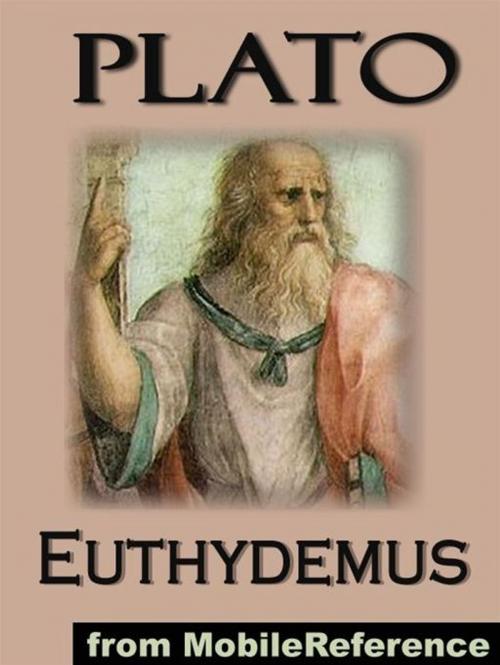Euthydemus (Mobi Classics)
Nonfiction, History, Ancient History, Greece, Religion & Spirituality, Philosophy| Author: | Plato, Benjamin Jowett (Translator) | ISBN: | 9781605018942 |
| Publisher: | MobileReference | Publication: | January 1, 2010 |
| Imprint: | MobileReference | Language: | English |
| Author: | Plato, Benjamin Jowett (Translator) |
| ISBN: | 9781605018942 |
| Publisher: | MobileReference |
| Publication: | January 1, 2010 |
| Imprint: | MobileReference |
| Language: | English |
Euthydemus (Euthydemos), written 380 BCE, is dialogue by Plato which satirizes the logical fallacies of the Sophists. It describes a visit paid by Socrates and various youths to two brothers, Euthydemus and Dionysodorus, both of whom are prominent Sophists. The main purpose of Euthydemus is to contrast Socratic argumentation and education with those of the Sophism, to the detriment of the latter. As in many of the dialogues, the two Sophists whom Socrates argues against, Euthydemus and Dionysodorus, were indeed real people. Euthydemus was somewhat famous at the time the dialogue was written, and is mentioned several times by both Plato and Aristotle. Likewise, Dionysodorus is mentioned by Xenophon. The dialogue sharply contrasts Socrates' air-tight logic and calm, courteous manner with the arrogance and logical trickery of the brothers. Throughout the dialogue, Euthydemus and Dionysodorus continually attempt to ensnare Socrates with deceptive and meaningless arguments, primarily to demonstrate their professed philosophical superiority. Excerpted from Wikipedia, the free encyclopedia.
Euthydemus (Euthydemos), written 380 BCE, is dialogue by Plato which satirizes the logical fallacies of the Sophists. It describes a visit paid by Socrates and various youths to two brothers, Euthydemus and Dionysodorus, both of whom are prominent Sophists. The main purpose of Euthydemus is to contrast Socratic argumentation and education with those of the Sophism, to the detriment of the latter. As in many of the dialogues, the two Sophists whom Socrates argues against, Euthydemus and Dionysodorus, were indeed real people. Euthydemus was somewhat famous at the time the dialogue was written, and is mentioned several times by both Plato and Aristotle. Likewise, Dionysodorus is mentioned by Xenophon. The dialogue sharply contrasts Socrates' air-tight logic and calm, courteous manner with the arrogance and logical trickery of the brothers. Throughout the dialogue, Euthydemus and Dionysodorus continually attempt to ensnare Socrates with deceptive and meaningless arguments, primarily to demonstrate their professed philosophical superiority. Excerpted from Wikipedia, the free encyclopedia.











![Cover of the book Works Of Ellen Wood [Mrs. Henry Wood]: (50+ Works). Includes: East Lynne, The Shadow Of Ashlydyat, Bessy Rane, Anne Hereford, The Channings, Johnny Ludlow Series Stories & More. (Mobi Collected Works) by Plato, Benjamin Jowett (Translator)](https://www.kuoky.com/images/2010/january/300x300/9781605018171-9Ztv_300x.jpg)



